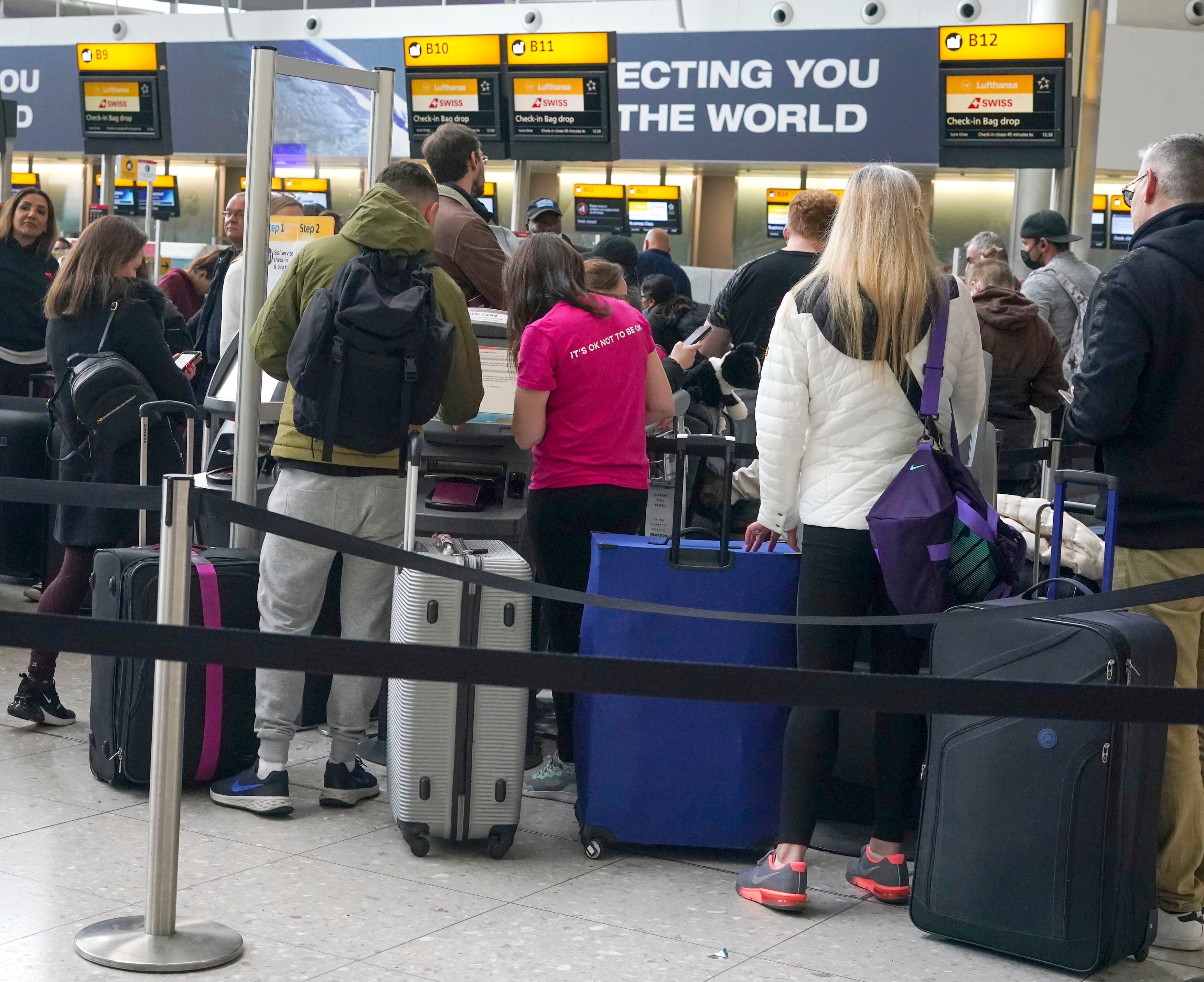Here’s why Easter travel chaos is ruining your holiday
The travel industry has had a dreadful time, but terrible management has made the situation worse, writes Hamish McRae


If you are caught in travel chaos over the Easter holiday, or indeed in the further troubles ahead through the summer, you have a right to be furious. But you also have a right to have an explanation. Economic commentators can’t do much to assuage the anger, except to report what is happening and try to explain it. Here goes.
There are two stories here. One is about the impact of the pandemic on service industries. The other is about dreadful management. The first was always going to be difficult to cope with. The second points to lessons to be learnt.
The key thing about service industries, and particularly about the travel and tourist business, is that you can’t store your output. Manufacturers could adapt to the pandemic by storing both components and finished products, though the upheaval of their supply chains has led to serious shortfalls in output. But overall demand for goods did not fall significantly during the lockdowns. So the challenge was to keep going under difficult circumstances.
For travel and tourism it was different. Not only did demand collapse, but the airlines, hotels, and other parts of the industry could not keep producing and then sell the output later. An empty airline seat is gone forever. So they had to shut down, or at least largely so. Cranking back up again when you have had to lay off most of your staff was much harder for them than it was for manufacturers.
There is a further twist. We, as customers, also have different expectations. We are prepared to wait for six months for delivery of a new electric car. We are not prepared to wait six hours at the airport for a flight to Geneva.
This shutting down and then opening up again has been particularly difficult in the current labour market. For reasons that I don’t think are yet fully understood, many people have decided to stop working, mostly by retiring early. The latest figures for the UK show unemployment at 3.8 per cent, the equal lowest since 1974. Managers have never experienced this before in their working lives – not many of us were working in the 1970s – and so it is hardly surprising that they are finding it tough to staff their businesses.
And the travel and tourist industry is a huge employer. It accounted in 2019, before the pandemic struck, for 10.4 per cent of global GDP. In 2020, worldwide employment fell from 334 million to 272 million. That’s a lot of people to try to rehire.
So it was always going to be difficult, but I suggest that poor management has made the problem vastly worse. That’s the second story. There are good employers and bad employers in every walk of life, but the travel business seems to collect more than its share of the latter.
Take three current examples here in the UK: P&O Ferries, Manchester Airport, and British Airways. There is not much to add to the dreadful saga of P&O Ferries. Of course, it has to keep its costs under control but there are right ways of doing things – and wrong ways. The summary sacking of your workers and replacing them with agency staff at below the national wage is the wrong way.
To keep up to speed with all the latest opinions and comment, sign up to our free weekly Voices Dispatches newsletter by clicking here
You have to behave pretty badly for the prime minister to say you should resign, but that is what the company’s chief executive managed to do. We will have to wait and see what happens in legal terms, but this is not simply a legal matter. It is a social one, and P&O Ferries has failed not only in its duty to its own people, but to wider society too.
Manchester Airport is interesting because it has a quasi-monopoly on international air travel in the north of England. It was number three in the UK in its pre-pandemic number of passengers – just under 30 million – and the largest outside London. In recent weeks, it has been particularly dysfunctional, and its managing director, Karen Smart, has had the grace to resign. But the thing that disturbs me is the disparities in pay.
In 2021, Karen Smart was paid £2.5m, yet apparently, the group is advertising jobs starting at £13,000 a year. This is a company in which its largest shareholder is Manchester Council. This cannot be right.
As for BA, many of its problems seem to stem from computer failures. Its previous chief executive, Alex Cruz, got rid of its own computer staff and outsourced the function to Tata Consulting. Tata is a fine company but clearly has struggled with the legacy computer systems of BA, as we reported at the time. I see Alex Cruz is tipped in the Indian press to be the next head of Air India, which is owned by Tata.
My point is simply this: the travel industry has had a dreadful time, but terrible management has made the situation worse. We need to treat all working people decently. Too many businesses have not done so and we, their customers, are now paying the price.
Join our commenting forum
Join thought-provoking conversations, follow other Independent readers and see their replies
Comments
Bookmark popover
Removed from bookmarks